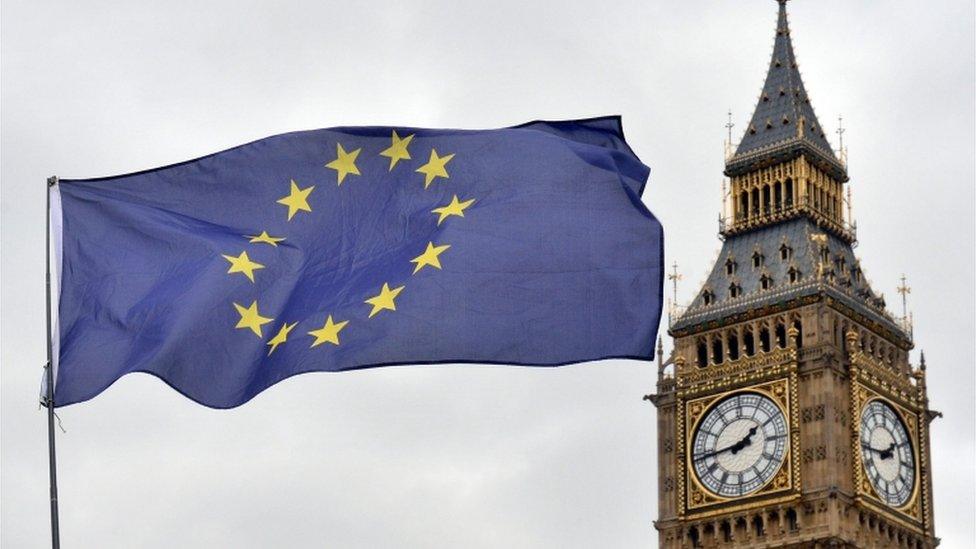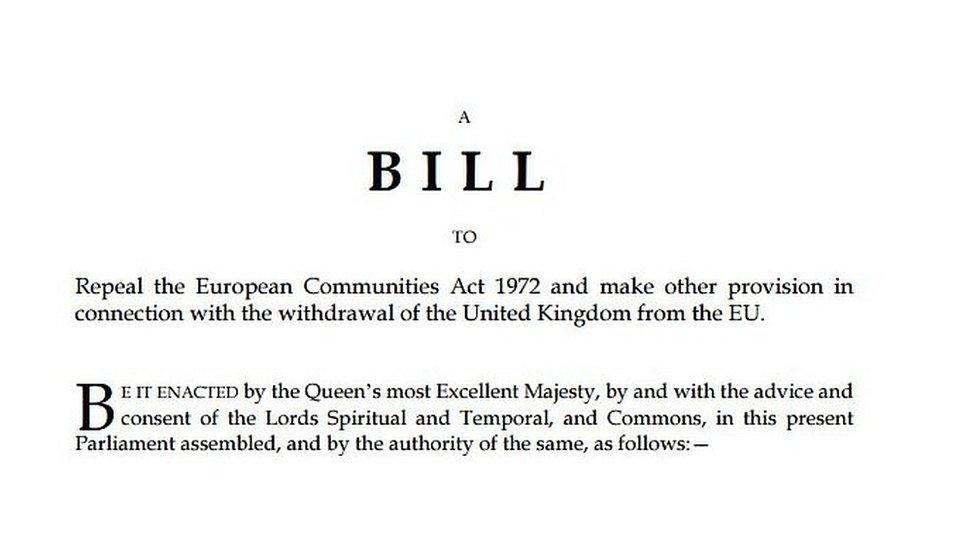EU bill: what are the consequences of today's votes?
- Published

All aboard for another spin of the Brexit hamster wheel!
As MPs embark on the first of what promises to be a long series of votes on Lords amendments to the EU Withdrawal Bill, here are a few thoughts on the events ahead:
First, and this is almost Rule One of Brexit legislation, there is always another vote further down the road.
On several of the big issues around the Customs Union or the EEA, future legislation like the Trade Bill (due back in the Commons by mid-July, we're told), or even the forthcoming Withdrawal and Implementation Bill (due whenever the government can negotiate a deal to put before MPs) will provide further opportunities to put down amendments to shape the government's negotiating strategy.
So this is not, the end, or even the beginning of the end, and I sometimes fear it is not even the end of the beginning.
Second, for party hierarchies, the list of Tory potential rebels provides a convincing argument against the once-fashionable idea of selecting candidates via an "open primary" process, where non-party members in a particular seat are invited to join a postal ballot on who should be the candidate, in an effort to widen the "selectorate" for new MPs beyond the narrow confines of the local party membership.
Newly-resigned justice minister, Dr Phillip Lee, and leading rebel Dr Sarah Wollaston were both the product of David Cameron's brief flirtation with this process - and a third potential rebel, Heidi Allen, came second in the primary for South East Cambridgeshire in 2014, before winning a conventional selection in neighbouring South Cambridgeshire, soon after.
All three subsequently proved to be notably independent-minded in the Commons. I'm told the mantra at Conservative Central Office in the selections in 2017, for Theresa May's snap election, was "no more Heidi Allens!"

Third, it is worth remembering that the debates on the Lords' amendments to the EU (Withdrawal) Bill take place within unusually restrictive rules, which mean it is almost impossible for Opposition amendments, let alone backbench amendments, to be voted on.
So the various compromises offered up by Labour and arch-rebel Dominic Grieve have other purposes than changing the wording of the bill. Labour's is about finding a party line that its warring Brexit factions can unite around, and Mr Grieve's provides a helpful text for an alternative version of the "meaningful vote" which peers might pick up in later stages of the to and fro between Commons and Lords.
Fourth, remember the other player in the consideration of this bill; if the Commons rejects all the Lords amendments, peers then have to respond and may not throw in their hand.
They might accept the verdict of MPs on some issues, not others - and they will look very closely at what is said in the debate (including the amount of time devoted to particular amendments) the majorities by which their amendments were rejected, and the reasons offered.
Peers may well decide, on some issues, to double down, and send back a new amendment.
The Lords has a lot of internal inhibitions about defying the Commons and sometimes its will to do so quickly collapses - but not always.
Old hands recall the Corporate Manslaughter and Homicide Bill of 2007 which bounced between the two houses seven times. And then there's the Salisbury doctrine; that peers do not vote against the second reading of a bill which is foreshadowed in a government's election manifesto.
There's a very interesting Constitution Unit blog, external from the former Clerk of the Parliaments (the top official of the Lords) Sir David Beamish, which argues that, whether commentators agree or disagree, peers have done nothing unconstitutional.